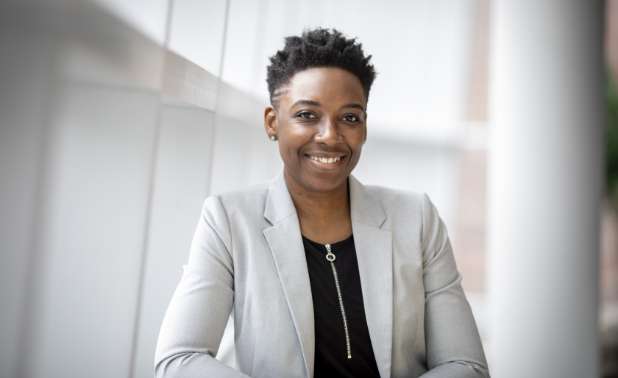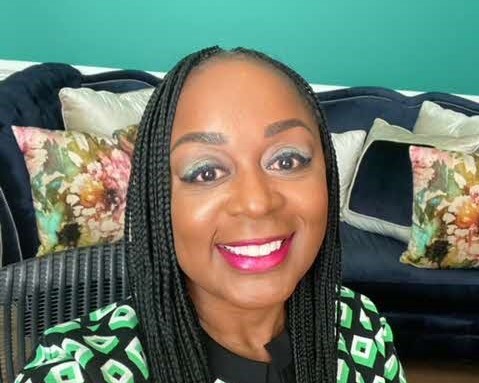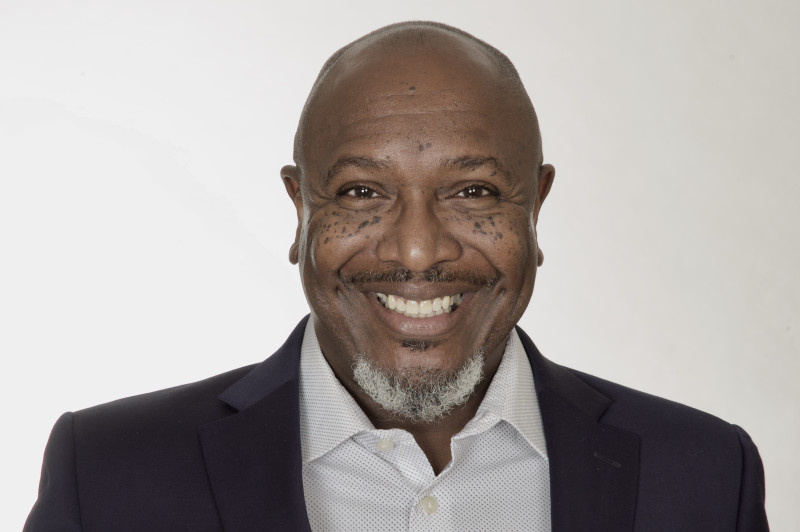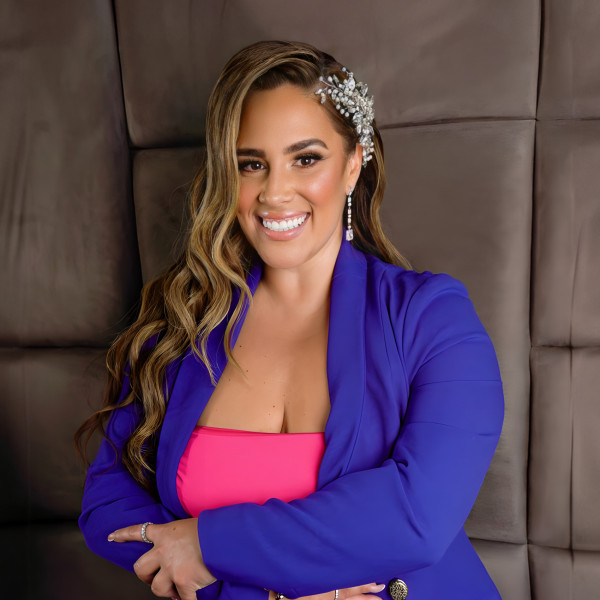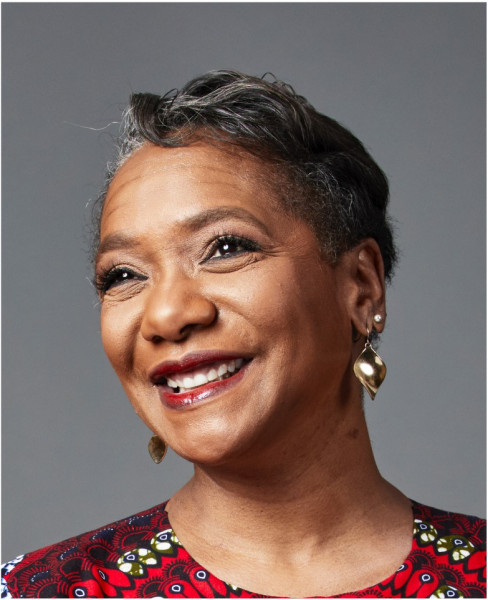Kamela Forbes:
Welcome to But First, People, a podcast brought to you by Pride Global. I’m your host, Kamela Forbes, the global head of diversity, equity, and inclusion here at Pride Global. Along with my colleagues, on this podcast, we’ll dive into everything from diversity, equity, and inclusion to service and staffing in the human capital industry and so much more. Join us as we sit down with industry experts to hear their stories.
Kamela Forbes:
Hello, everyone. Welcome back to But First, People. Today, I’m excited to sit down with Doctor Tiffany Dotson. Doctor Tiffany is a talent, learning, and leadership development scholar, practitioner, and strategist with more than 27 years experience of developing employee cultures that drive growth and business strategy. Her current position is vice president, head of enterprise learning and development at Liberty Mutual Insurance, where she oversees the strategic direction for developing the pipeline of talent for 50,000 people at all levels globally. Dr. Tiffany holds both doctorate and master’s degrees in adult learning and organizational leadership from Columbia University, where she’s also an adjunct professor of executive development. Dr. Tiffany, we are thrilled to have you here with us today.
Kamela Forbes:
All right. Let’s rock and roll. So, hi, Tiffany. So great to have you here with me as a guest on this podcast today. I am super excited to talk to you because I know you have a wealth of knowledge that you’ll be able to give to our listeners today. So, welcome. Thank you for joining me.
Dr. Tiffany Dotson:
Thank you for having me.
Kamela Forbes:
Yes. And I know you at one point sat in this position that I sit in today at Pride Global, where you were heading the DNI initiatives over here. So, you have passed that virtual baton on to me now.
Dr. Tiffany Dotson:
Yes. Lucky you. Lucky you.
Kamela Forbes:
Picking up where you left off. So, I know there’s a lot of great initiatives that we’ve been doing. And I hear your name mentioned around here often, about all the great work that you had done previously. So, I’m really happy to have you here so you and I can get a chance to talk—and talk about DNI in this industry, the staffing industry, and the industry you’re in now, and just collectively how we, as DNI professionals, are trying to move the needle overall. So, before we get started, I always like to start off these podcasts with making sure that the guests are nice and comfortable and settled in for this chat. So, one of the things that we make standard in the podcast, is that we ask our guests to just sing a couple bars of their favorite song or a song that just resonates with them today.
Dr. Tiffany Dotson:
This is a part of Pride that—when I think about my experience at Pride, I’m happy that this is over. Because this was very, very scary to get up and sing in front of people. But I am well-prepared for today. I do not have a singing voice, but I am going to honor what you’ve asked me to do today.
Kamela Forbes:
Good. Like you say, it’s just about everybody throwing caution to the wind and sometimes you grow by being uncomfortable, right? Stretch your limits. And I think there’s so much learning just in that. There’s just so much around this little activity as a learning lesson for anybody.
Dr. Tiffany Dotson:
I think you’re spot on. I think you’re spot on. And it also humanizes us, right? So, I’m going to sing a song that Beyonce remade that I enjoy. So, I’ll sing a couple bars there. It’s called "Before I Let Go."
Dr. Tiffany Dotson:
[Singing]
Kamela Forbes:
Yes!
Dr. Tiffany Dotson:
That’s all I got for you.
Kamela Forbes:
All right. Well, that was good enough. Yes! I like it. Like you say, just those lyrics. Sometimes it’s just the lyrics that speak to you. “I want to make sure I’m right before I let go.” Let’s take those words and join in and just think about how it’s about bettering yourself and what we’re doing in this DNI industry is really about us stepping up to the plate and doing what’s right for us and for our companies. And that’s really what we unleash into the world and the universe, and collectively it’ll all come back to us. So, you’ve been in this DNI industry for many years, as we mentioned. You were previously sitting in a diversity role at Pride Global, and now you’re in the learning and development space in Liberty Mutual. How did you get into this line of work from the beginning? And what’s your “why”? What’s your passion that drives this DNI industry for you?
Dr. Tiffany Dotson:
Yeah. I love that question. Through virtue of who I am and my education and by the nature of me developing leaders, I would call myself a DNI practitioner. However, I’m really in the field of leadership in the organizational development. And I believe that DNI is an aspect of that. And so how I got into this industry really came to me through an academic assignment in my sophomore year of college. I was in a sociology class. We just learned about leadership and the various tenants. And it was a two-part assignment. Part one was to identify a leader, either dead or alive, who we vehemently hated. And that was tough for me, because I hadn’t experienced many leaders, real-time, a sophomore in college. However, I had just taken a trip to the Netherlands and visited Anne Frank’s home. And I got a real good history of Adolf Hitler. And I said, "Well, geez. There can’t be a leader, dead or alive, that was worse than Hitler,” at that point." Clearly there have been more. So I picked at Adolf Hitler, part one.
Dr. Tiffany Dotson:
Part two was to then take what we had learned about leadership and to write a paper really expressing the effectiveness of that leader based on the leadership tenants we learned. And I said, "Well, how in the heck am I going to write a paper about Hitler advocating his effectiveness? Not possible." Well, come to find out, when I learned about Hitler and his leadership style, and how he galvanized the group, he organized them around a common cause, he rewarded the right behaviors—he actually was a very effective leader. I had a very difficult time arguing against his effectiveness, key word, “effectiveness.” And I said, "Wow. This is really amazing to me." And he never had a gun to his head. He never made people do anything. And I said, "Wow, I’m so interested now in the psychology of management and leadership. I want to understand what this is. And if leaders have power, how can I help them use this magic wand for good versus bad?" And so, studying and understanding Adolf Hitler and his plight, juxtapose leadership development elements, actually inspired me to join the world of leadership and organizational development.
Kamela Forbes:
Wow. What an interesting journey. To think that was the catalyst to you getting into this work. I know you talk a lot also about learning versus being educated. Could you tell us a little bit more? One might think that they’re kind of the same. It’s all about education, right? Getting that knowledge. But what is the difference to you between “learning” and “being educated”?
Dr. Tiffany Dotson:
Love this question, and as someone who has the highest degree in the land, I’m highly educated. Wow, that feels good to say, but the one thing I learned about being highly educated is that I hadn’t learned much. Education is done to you, so you participate in a curriculum already predetermined for you by individuals who determine what they want you to know. And they will, again, give you some accreditation based on how you pass certain courses and really complement or be competent in their way of knowing. So, that’s education. So I can say that I check the box. But learning is actually done to yourself. So, education, again, is done to you. But when you’re learning, that’s a more self-directed approach. You actually go out and get it for yourself. You go and devour and learn your craft, ask questions, study all different kinds of people who have a perspective on what you’re interested in. And then you begin to form your own ways of knowing, generating your own thoughts. And so that’s why I differentiate “education” versus “learning.” There are a lot of very educated people, but not many learned individuals in the world, from my perspective.
Kamela Forbes:
That’s deep. I think, just to your point, you talk about people that might have a lot of titles, a lot of degrees behind their name, and not to say that isn’t great, but that also has to work hand in hand with them being open-minded enough to learn that no matter how educated you are, there’s still opportunities to learn. And I think that’s a very, very important principle about leadership, right? That regardless of your title or how many direct reports you have, there’s something you could learn every day from the people that report in to you. And I think that’s really the key part of what we’re looking at here. It ties so well into inclusion. We talk about it from a DNI lens.
Dr. Tiffany Dotson:
You got it. And Leo loves this phrase that I used to say all the time. I still say it: “Every day is a school day.”
Kamela Forbes:
Yeah. “Every day is a school day.” I like that. Well, I think a big part of the work that we do is about meeting people where they are on their DNI journey. Like you said, for people learning, what are some of the best ways that you’ve seen to lead change and help people to see things differently in the eyes of somebody that’s so unlike them as we try to work in this field where we’re really advocating—and so many companies are on a path to increase the diversity of their organizations? How is it that we get people to learn, to accept, and to embrace the differences of a diverse workforce?
Dr. Tiffany Dotson:
Yeah. I get this question a lot. And the question specifically is, “Tiffany, how do I become an inclusive leader?” I get that so much. And it’s really germane to what you’re talking about. And before you can actually be an inclusive leader and be an advocate and ally, you need to be an inclusive person. You can’t bifurcate who you are with your role. So many people think that— come to a workplace and then put on this DNI hat and then go home and be someone different. It doesn’t work like that. So if you want to be an inclusive leader, you need to be an inclusive person. One will say, “Well, how do you do that?” For me, the litmus test is: when was the last time someone who looks different than you actually sat at your dinner table? So, pre-COVID notwithstanding, when was somebody at your house?
Dr. Tiffany Dotson:
And I’m saying your personal space, who is of a whatever diversity demographic you want to put in there. When was that person in your house? So you need to have real authentic relationships with people who are different than you first. So you need to start there. You can’t be an inclusive leader without being an inclusive person. Because once you have that general real connection, then you start to un-layer the onion, right? You start to unpack it and really see who people are, and you start to see how we’re much more similar than we are different. And so, for me, it’s about what is happening in your personal life. Being an inclusive person, that to me is a catalyst and opens all kinds of doors for coming to work and saying, “Here’s where I am on my journey, and here’s what I’m learning, and hold me accountable for this. And I had just had no idea about X.” Those experiences need to happen in your personal life. And then they could actually transfer into your professional life.
Kamela Forbes:
Oh, that’s deep. And it’s such a great segue into my next question to you, because, like you said, you can’t separate two individuals, a leader and who you are as an individual and inviting people into your personal space, right? It’s not about keeping them at arm’s length. Oh, okay. Yeah. But we’re at work. We could sit around the coffee table at work and have a chitchat and I feel like, okay, I’ve done my part. Or be a part of an ERG together. And yeah. I have friends of different demographics is one thing, but really when you allow them into your space, you really get to know people. And so my next question to you is—really you have a lot of expertise in the area of growth mindset. And that is really about being flexible, and adaptable, and open to change. And I think that comes from what you’re saying: really understanding people on a deeper level and more intimate or personal level. But what are some of the tools you share through—maybe—some of your learning and development workshops or sessions about how people can adopt more of a growth mindset?
Dr. Tiffany Dotson:
Yeah. I love growth mindset. This notion that you have this belief that you can actually improve as opposed to a fixed mindset where you believe that things are just finite, only one way. And so, what I do with leaders in the growth mindset space is I help them think about three things. That really it is about your thinking. So thinking about your thinking mindset, skillset, and then I made up a word called “habitset.” Which is funny.
Dr. Tiffany Dotson:
But really, I get people to think about the language. What is their thought process around their ability to improve? And so we know words that have power—our brains are hardwired and we like to create shortcuts. And so when we are thinking about a growth mindset, the language we use can actually concretize in our brains, and we start to believe things. For example, I have people shift their language from “I’m not good at this” to putting a simple word, “yet,” behind it. So, “I’m not good at this yet.” Or, “I don’t think I can.” Throw the word “yet” behind it. “I don’t think I can do this yet.” “I don’t understand it yet.” “This isn’t working for me yet.” Just the notion of adding that second word “yet” actually hardwires your brain to help you think it’s actually possible. Because when you just say “I can’t,” “I won’t,” “I don’t,” the brain cuts it off. And so you want to create a space for your brain to open up possibilities. So, that’s one way I teach people the language of growth mindset.
Dr. Tiffany Dotson:
And I have a couple other tips that—I have people think about what they traditionally do and then give them tips to consider doing instead. So, for example, with our children, we praise talent. Your child comes home with a report card, five As, two Bs, and a C. We praise talent, right? “Oh, you’re the best. You’re the smartest. I knew you were going to get that A.” That sounds good on its face but, actually, to encourage growth mindset and continuous curiosity, you want to praise the grit. “I’m so proud of you, Tiffany. You got an A in science, you work so hard.” Recall, “You got a tutor, you stay late, you practice and look what happened. You got an A.” So, getting people into this effort around not praising so much talent, but really praising more grit. That actually is a behavior that puts people in a more of a growth mindset.
Dr. Tiffany Dotson:
I ask, yeah, instead of waiting for feedback, I encourage leaders and individuals to go ask for it. That is a growth mindset. Just go. So, if you typically wait, I say, no, go after it, go do it. If you see feedback as a sign of failure, shift the mindset to say, “Well, actually, I want to see who can I talk to? How can I actually improve? Who can actually help me?” So, feedback is not a failure. It’s a gift, if you will. Shift your energy that way. And I have people think about if they are tempted to defend the ways they’ve always been, right? Again, our brain is hardwired¬¬¬¬¬¬—and we typically do things that feel comfortable to us that we’ve always done. So, if you say, “This is the way it is, this is the only way,” in a growth-mindset behavior I have them just be more curious and more open, right? Just suspend this idea that there’s only one way to do it. So if you have a tendency of always saying, “I know what’s right, and this is the way,” I just encourage them to consider maybe there’s a couple more possible ways to do it differently.
Dr. Tiffany Dotson:
Those are just some tactics that I do. So, for me, growth mindset is about thinking about your thinking. It’s also about behaving in ways that suggest that you’re demonstrating a mindset, and the skillset of how do you actually engage yourself in others, in language, in ways that push people out of this place of being fixed into a place of possibility and a belief that we all can improve.
Kamela Forbes:
That’s great. I think just something that resonates with me in which you just said there is “praising that grit.” Even if you get performance reviews and you’re like, “Hey, I did great,” it’s about having them think back to what it is that made them great. Or on the flip side, if you didn’t get it, right? Like you say, feedback is a gift. If you didn’t get what you expected to get, what was that process? How could I improve? What could I do better in that process? So, I think again, like you’re saying, if you don’t look at it as failure, but you look at it as an opportunity to improve, it’s that adding that “yet.” “Okay, I didn’t quite get it yet, but I got it. I will get it.”
Dr. Tiffany Dotson:
Exactly. You’re spot on. Feedback needs to be direct, observable, and specific. Yeah. Totally spot on. If someone says to you, “That was great,” you can say, “Oh, thank you for that. What was great about it?” Right? You need to understand what was great about it so you can actually repeat it in the future. And if it wasn’t, “What might you consider I do differently next time?” Right? So don’t allow someone to just tell you were awesome. You probably are, but you want to know the specifics.
Kamela Forbes:
And even just to hop on this is just, like you said, for you, you’re in that leadership organizational development. I think, just even as leaders, if you put something on, sometimes I get in a room with my team if I just did an event or speak at an engagement or something, I might be like, “What did you all think of that?” They’d be like, “Oh, it was great.” But if you just stop there, how do you really learn more, really? And I always dig for a little bit more. “Well, what was great about it?” I appreciate the compliment, but go ahead and give me something more. And then also to just even press for what could I have done better? Even if you tell me what was great, what was one thing that you think I could do better? Because it’s always about that learning and continuous improvement. “Kaizen” is a big word that we use here all the time.
Dr. Tiffany Dotson:
Mmhmm. Spot on.
Kamela Forbes:
I love that. I think, for me, one of the best aspects of having a growth mindset is that it creates a great foundation for this leadership development. When you think about learning from your direct reports, as I mentioned earlier, learning from your peers and being able to adapt, I think leading a company or your direct reports with empathy and understanding is some of the cornerstones of being a great leader. What tips could you share on leadership development that you teach? And also, maybe it might come through the form of a story you could share about the application of some of these tools that you might have used to transform a leader, or how you might have seen a leader fall to their demise because of lack of having some of these growth mindset tools.
Dr. Tiffany Dotson:
Yeah. So, I’ve been teaching leadership development for so long. I’ll tell you what I’ve been focused on lately. And this notion around leaders, I don’t believe leaders are born. I believe they’re made. And I also believe that leadership is a verb, not necessarily a position. And so I think we’re all leaders. You’re always leading from wherever position you’re in. You have the opportunity to influence. And that’s what leadership is really all about. And I’m teaching this notion now around leadership in three areas: how to be a leader, how to do leadership, and how to know leadership. And we overextend in the industry on doing leadership. You can go to all these classes around how to do all this great stuff that makes you a great leader, and I have been really having people sort of elevate their thinking in this space of being a leader. And I’ve come to this definition around, what do I mean by being a leader? It is really having profound accountability for everything that happens to you, to your team, that happens on your watch.
Dr. Tiffany Dotson:
Again, just profound accountability for everything that happens to you. Because I see so much out there where leaders aren’t being accountable for what is happening on their watch. And so I’m getting people to just elevate more around this notion of being a leader. I teach a lot and talk a lot about EQ versus IQ. We overextend on IQ. We overextend. So this whole notion around self-management and self-regulation is really important. As a leader, you are the person they’re having the conversation about at night when they’re sitting at their dinner table. They are talking about you and the impact you’re having on them. How you speak, the words you use, how you talk about changes that are happening in the organization. Your team typically will model that sort of energy. And so you taking the intention, taking the second to stop and say, “Well, how do I feel about this change and how am I going to relay the change?” Being authentic but being careful that you don’t create triggers, and that you actually know your team and you don’t say things that could jeopardize yourself or the organization.
Dr. Tiffany Dotson:
And so I really think this idea around self-regulation is so important as a leader. We are humans, but you need to stay in role. You need to be authentic, but you also just need to think about the impact that you have. And trust me, you have more influence than you imagine on your people. Self-management, right? Staying in role, not going off. Being a professional. Again, being authentic. So, actually showing emotion when you need to be emotional, I think that’s totally fine, but not mirroring someone else’s energy. If you have an employee that goes irate, not mirroring that energy. It’s really leading the way. So this notion around self-management I think is just really important.
Dr. Tiffany Dotson:
So I get people to think about EQ versus IQ, because we overextend on IQ. My biggest thing is about word choices. I do a lot of wrong language. Because wise people measure their words. Wise people measure their words. So be mindful of what you say and how you say it. You’re going to give people news they can actually use. And be in a way that creates less threat. As a leader, you are going to create threat sometimes based on what you have to say, but it’s how you say it. You want to mitigate as much threat as possible and move people towards a reward state in their brain. Because bad things carry more weight in our brains than more positive things, so you got to be really careful about how you talk.
Dr. Tiffany Dotson:
And then I talked about two more things lately. I’ve been talking about relationship constructions. Back in the day it was, “I’m the boss and I’ll tell you what to do.” It’s a triangle. I was at the top as the boss and then at the bottom was my employees. It’s inverted now. Really, the employees have the expertise, and you are really responsible for relationship construction. Inspiring, motivating people, connecting them to the work. You’re not the one with all the expertise, and you need to know that. So I talk about the importance of relationship construction, embracing failure as a leader. Looking at failure as a natural step on the journey to success and sharing that failure with your team. In fact, I was with a team recently, we talked about having a failure quotient. Really getting people excited about failures and sharing those failures so we all can benefit from the learning. So failure doesn’t look like it’s the end of the world and you’re not smart. You’re actually getting smarter because you’re failing faster and sharing your mistakes with the team. So I’ve been kind of hanging out in that space lately. Yeah.
Kamela Forbes:
There’s a lot of really good spaces. From emotional intelligence to psychological safety to confidence building. Wow. That’s powerful.
Dr. Tiffany Dotson:
Yeah. I was thinking about a story about a leader. There’s this idea about—a lot of leaders, again, we think we’re the smartest people in the world, and sometimes we’re not. And sometimes the people who report to us actually have more competence in a topic than we do. And so how I’ve seen a couple leaders kind of fall is believing that they were more capable than their teammates or direct reports on a topic. And they’ve shown up and been exposed. And I’ve seen that. And so I think that leaders need to be really confident around what their role is as a leader and how sharp their people are and to really show up and set the direction, inspire people towards the goal, be clear about your expectation, and then get out the way. Let the person who is the most competent, more capable, lead. So, I think as a leader, if we can, learn how to follow. Learn how to follow. Because that’s where I’m seeing a lot of leaders trip up. They don’t know how to follow.
Kamela Forbes:
And I think that’s a great thing, because, like you said, those nuggets you just dropped just now, that was a master class in and of itself. But when you think about cultivating confidence too, like you said, a leader should understand that. Be confident and be aware so that they know when to step out. But it’s also about an employee understanding and having that confidence to speak up and exercise their expertise. So what would you say is something that all of us can learn from it, regardless of what stage we are in our career? What are a few tips that you could share about how to cultivate that confidence? More so from an employee level.
Dr. Tiffany Dotson:
Yes. Employee level. I talk to employees about confidence all the time. One, I would say a lot of effort, especially in the western society, is on being the best. You got to be the best. You got to outperform everybody else. And I’m asking us to consider not focusing on being the best, but rather focus on mastery. Become a master around what you’re doing. Don’t let other people judge. So now don’t focus on being better than other people. Earlier we talked about education versus learning. I can encourage people for confidence, to be a leader of your own learning. Don’t wait for someone to tell you, “Here’s what you need to know, here’s what you need to do.” Actually go out and devour knowledge. Be a leader of your own learning. Find different articles, podcasts, people. Do whatever you have to do to increase your knowledge, but lead your own learning.
Dr. Tiffany Dotson:
Get comfortable being disliked. That’s going to help you with confidence. Everybody who is masterful isn’t liked. The goal is not to be liked. The goal is to be respected. And I think that’s really important. A lot of us get all bent out of shape that people don’t like us, and that’s okay. For confidence, yeah. I think preparation is key. So if you prepare, most of the time, if you prepare, you will do a great job. And if you’re not ready, you’re in a meeting and someone asks you a question you don’t know, it’s okay to say, “I need more time to process that. That’s a great question, I don’t have an answer.” That is a smart response. Don’t try to make up something. Just say, “I haven’t thought about that. I’ll get back to you.” Just really be okay with that. So be prepared.
Dr. Tiffany Dotson:
I think I encourage intellectual humility. Don’t get overconfident. Know what you know and know what you don’t know. Get real clear about that. Get real clear about that. I want you to be open minded, speak up, share what you believe. I also think that you want to poke holes in your own data. So when you present data, always show the limitations of your data. And the secret is if you show the limitations of your data, other people won’t try and poke holes in it. Nobody’s work is perfect. Nobody’s work is the end-all be-all. Some things that we learned in the past are not true anymore. And then some things we learned in the past were never true. And so no one’s data is perfect.
Dr. Tiffany Dotson:
An example would be, back when we were to figure out the food chart around what to eat, everybody said “Eat cheese, milk, and all of this.” Now they’ll tell you, “Oh, don’t eat milk. Do not drink milk.” Why? Because milk from a cow is created to help a baby calf gain 80 pounds a month. So that’s not true anymore. So you see, it’s okay to poke holes in your data, and to change your perspective, and to show the limitations of your data. The more you do that, people will start to believe that you are a good thinker, that you are an end-to-end thinker as well. And you don’t want to just say, “This is it. This is the best out there.” Because it probably isn’t. So get to a place where you are poking holes in your data and have some intellectual humility.
Dr. Tiffany Dotson:
Get into the habit of seeking others’ perspectives. That’s how you build confidence. You ask other people, “What’s your perspective on this? How might you see it? How did you come to know that?” Become a good question asker. I think the person in the room who’s asking the most questions, that’s the most confident person in the room. In fact, they might be the smartest person in the room. Not the person answering the questions. So get into a place where you know how to ask a question. If you get into a disagreement with someone, don’t debate them. You may ask the question around what evidence would you need to see to believe that? How did you come to know that? Get five really good questions that you can always ask. That’s how you can build your confidence by asking questions. Again, I didn’t say answer the questions, but asking the questions. That’s the thinker in the room. Everybody wants to be around the thinker in the room, not the person with the responses, with the answers.
Dr. Tiffany Dotson:
And give yourself grace as well. I would say, as a confidence builder, is to extend yourself grace. When you are presenting, talking to people, and getting to know folks, and if things don’t go exactly as you plan, extend yourself grace. And then reflect on what you did well, and then what you’re going to do even better next time. So those are just some tips, I think, for building confidence.
Kamela Forbes:
Those are a lot of great tips. And one of the things I like about what you said too is about asking the questions because, like you say, we all believe we might be the smartest person in the room, but even if you know the answers to those questions it’s still good to ask those questions anyway. Because you might hear a different perspective from somebody else that could help influence you. And again, going back to helping you be a learner versus that educated person. And I think that right there is the key to adding to that.
Dr. Tiffany Dotson:
I wanted to say one more thing. You gave me an insight. Your goal as a confident person is not to be the smartest person in the room. Your goal as a confident person is to make other people feel smart and confident.
Kamela Forbes:
Oh. Yes. Pass that along. Right. Well, before I let you go, I must say that you’ve clearly made an impact across the industry and developing leaders. And I mean everything from making sure that they are, great, educated, but making sure that they are confident, that they understand how to create psychologically safe environments, how to make sure that, in addition to all the IQ, that they have an equal amount of EQ. And so, based on the impact that you have made over the countless workshops and lives that you’ve touched, what do you want your legacy to be when it’s all said and done?
Dr. Tiffany Dotson:
I love that question. I want people to say, “Tiffany, she actually never told me what to do. Instead, she helped me think better.” I want people to leave an experience with me wanting to live a life of significance. Wanting to design their life and not live it by default, by someone else’s sort of prescription. So I just want them to believe that they can do more, be more as a result of our experiences. Now I just want people dreaming. I want people dreaming.
Kamela Forbes:
Like I say, you dream, you build that confidence, you could do it; you have a growth mindset and you know that the world is yours. And to bring it back to your Beyoncé song, you’ll work on you and then go and show that to the world. Right?
Dr. Tiffany Dotson:
Exactly. Exactly.
Kamela Forbes:
Make sure you’re right. And then let’s go.
Dr. Tiffany Dotson:
That’s right. Let’s go.
Kamela Forbes:
Well, Tiffany, thank you so much for being here with me today. This conversation was enlightening. Even when you feel like you know it, I’ve asked you those questions to—questions that I thought I knew the answer, and I got some really great responses. So I feel like I just took all of your advice and rolled it up, executed it. And I must say it, I feel full. I feel fulfilled. I feel like there’s that renewed energy. And I hope that all of our listeners today get that same energy and positivity. And knowing that there’s that burst of confidence, you could go out there and be truly inclusive leaders. Make sure that these little tidbits, small little things that you could do to make a difference in the lives of your employees, to help attract people to your firm, to help retain people in your firm, and to just be a great inspirational leader. So thank you so much for your advice and your expertise. And I look forward to chatting with you again soon.
Dr. Tiffany Dotson:
Wonderful. Thank you for having me and keep doing the good work that you’re doing over at Pride Global.
Kamela Forbes:
Thank you so much for joining us today, Dr. Tiffany. We really appreciate it. And thanks to you, our viewers, for spending some time listening with us today. To learn more about Pride Global, please check out our website at www.prideglobal.com. And if you have any questions for Dr. Tiffany or myself, you can email us at butfirstpeople@prideglobal.com. And of course, don’t forget to like, share, rate, and most importantly, subscribe to our podcast. Thanks again. And I hope you tune in again real soon.












